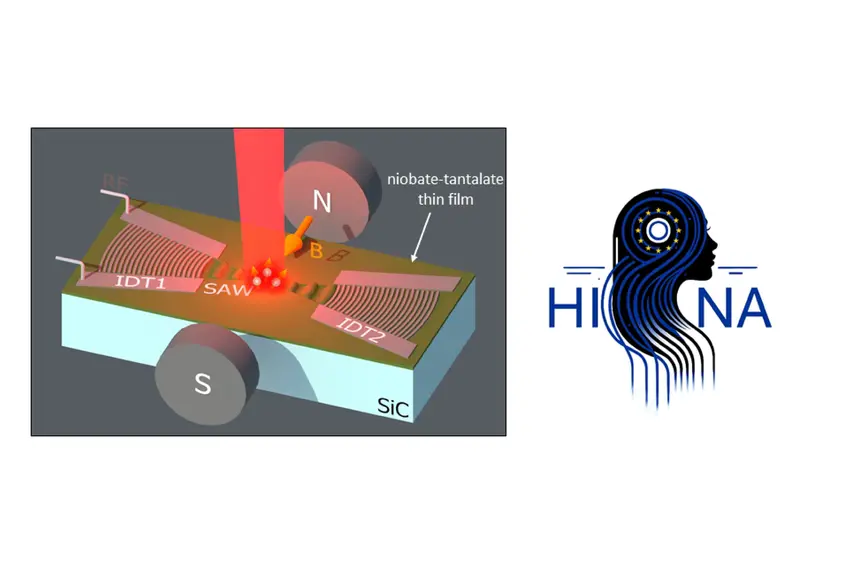High-frequency SAW resonators on SiC for applications in quantum technology (MSCA Doctoral Network "HINA")
1/11/2024 - 31/10/2028

Atomic color centers in solids (single vacancies, antisite defects, impurities, etc.) are very attractive for applications in quantum communication and sensing. In addition to optical and microwave techniques, elastic vibrations (phonons) provide a complementary approach for spin manipulation in such centers. The main goal of this project is to realize on-chip quantum memories and sensors consisting of silicon vacancy (VSi) centers in SiC controlled by high-frequency (up to 6 GHz) coherent acoustic phonons in the form of surface acoustic waves (SAWs). Due to the weak piezoelectricity of the SiC substrate, efficient SAW excitation requires the integration of strong piezoelectric films. In this project, we will design, fabricate, and characterize acoustic resonators and structures for the efficient guiding of high-frequency SAWs in monocrystalline alkaline niobate-tantalate thin films (materials with the highest experimentally measured electro-optic, elasto-optic and piezoelectric coefficients) directly grown or transferred onto SiC substrates. Once this is achieved, we will use the dynamic strain of the SAWs for coherent spin manipulation of VSi centers in SiC.
The project is part of the Marie Skłodowska-Curie Doctoral Network “Hybrid INtegration of Alkaline niobate-tantalate films for advanced photonic and piezoelectric devices (HINA)”. The aim of HINA is to develop a photonic and acoustic technology based on the hybrid integration of alkaline niobate-tantalate thin films in advanced semiconductor platforms, thus providing beyond state-of-the-art performance at a reasonable cost and viable for real industrial applications. The HINA Doctoral Network brings together world-leading European research groups from academia and industry to provide a combined, integrated approach of synthesis/fabrication, characterization and modeling linked to concepts for materials integration in photonic and acoustic systems.
The project is funded through the EU Horizon Europe MSCA Research Framework Programme under the Grant Agreement No. 101169557.
Team
- Alberto Hernández Mínguez
- Mingyun Yuan
- PhD Student